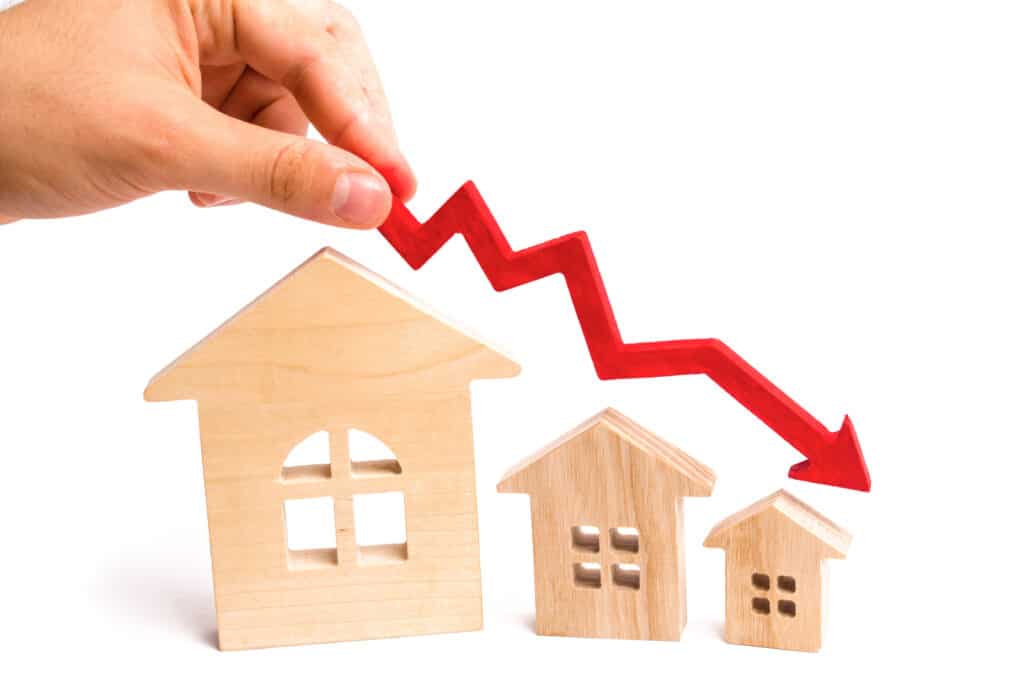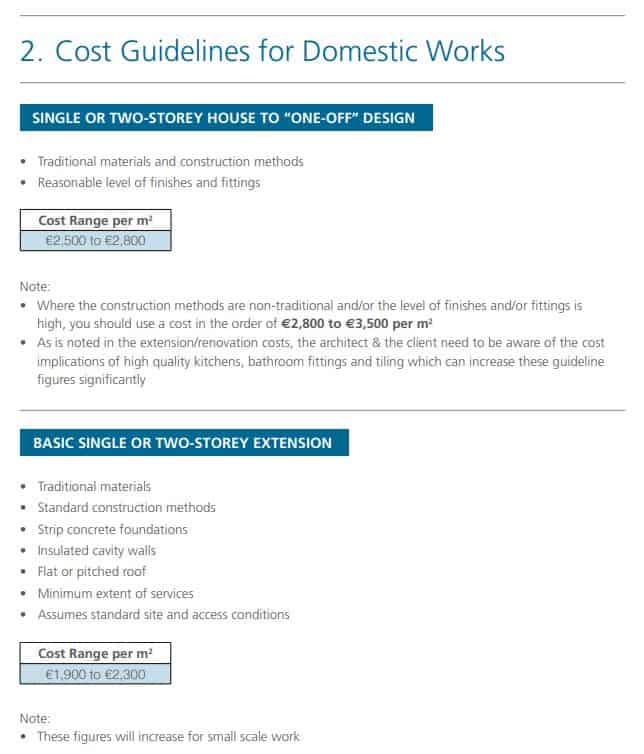How much does it cost to build a house in Ireland?

How long is a piece of string?
With so many different figures being thrown about e.g., €100 per square foot, it can be very confusing for those about to embark on a building project. As this is the single biggest investment most of us are likely to make, it is important that you are confident that your hard-earned (or borrowed) cash will be well spent. The costs of building residential houses and extensions are challenging to determine as there are many variables such as:
- Location
- Size
- Site conditions
- Number of rooms and storeys
- Kitchen and bathroom fitting designs
- Availability of contractors
The above items are just some of the factors to be considered. It can be a bit like buying a car e.g., are you going for a top of the range new model
or a secondhand fixer upper classic?
Where do I start?
As a starting point, the key issue will be the floor area of your new home or extension. This is where clever design can cut costs to ensure every square millimeter (or inch) is utilized and non-habitable space such as circulation corridors are minimized.
One thing we can be sure of telling you is that you cannot build a house in 2025 for the oft-quoted figure of €100 per square foot which probably dates from the last century. Even a self-builder could not deliver a new home, compliant with all current Building Regulations or to “builder’s finish” for that rate. If friends, who built houses, tell you otherwise, don’t believe them. Most people forget to include lots of things they had to fork out on like septic tanks and pre-construction outlays.
Precedents
Based on tenders we received for new houses in the latter half of 2024, a more realistic figure for building a one-off detached new-build house in a rural area would be in the region of €3,450 per square meter (€320 per square foot) with many projects reaching just under €5,000 per square meter (€450 per square foot). This figure would include having the work undertaken by a main contractor and VAT. It would also be based on a turn-key finish – ready to move into. Furthermore, refurbishment projects are easily clearing the €3,000 per square metre rate and are reaching over €4,000 in some instances.
It would not include site purchase costs, Development Levies (€2,000 – €20,000 depending on the floor area and what Co. Council you are dealing with), professional fees (5-15%) or inflation.
The latter item is likely to continue to rear its ugly head again in 2025 because of construction personnel shortages, material shortages, ongoing delivery problems and of course, global conflicts. It is generally accepted that the shortage of trained personnel is the single biggest item impacting on building costs which has driven up labour costs.This led to an increase of up to 25% in building costs in some areas since 2023. It will be interesting to see if prices show a downturn or steadying off later in 2025 as some of these issues have begun to level off.
The Royal Institute of the Architects of Ireland (RIAI) published a consumer guide, Building/Construction Cost Guidelines which give gave indicative figures in 2019 as per the diagram below. Obviously the figures are out of date but the guidelines cover many areas that might be useful for somebody just starting out.
SELF-BUILD
We strongly recommend careful consideration is given before embarking on a self-build / Direct Labour build if the intention is to try and reduce costs. This approach is not for the faint-hearted and should not be undertaken by anyone who does not have prior experience in the construction sector. The regulatory environment in which building is monitored has become increasingly complex and you do not need to discover a problem at the end of the project in obtaining statutory certification.
You also need to estimate the cost and availability of your own time. A building project cannot be realistically managed by anyone with a nine to five, Monday to Friday job. We can talk about this with you in more detail if we are working together.
BUDGETING
You may have assembled a huge scrapbook or Pinterest file of desired interior and exterior images, but it is good to bring an element of practicality to the process. A good start is to assess your pre-construction outlays rather than just focusing on the building cost as these can mount up and you will need to fund these yourself before a mortgage kicks in. These could include:
- Site purchase costs
- Stamp Duty
- Land Registration fee
- Gift Tax (if receiving a site from a relative)
- Site survey / marking out fee
- Site Valuer fees (for a mortgage)
- Solicitor’s fees
- Architect’s fees
- Specialist consultant fees e.g., archaeologist or flood risk assessment depending on the site
- Planning application costs
AND FINALLY….
PROFESSIONAL FEES
Trying to save on the professional fee for an architect may be a false economy when this is such a small part of the overall cost of building. In many cases, by making smart design decisions and having someone on your side who is experienced in project management and negotiating with builders, the cost of our fee is offset by the savings made regarding the building construction cost.
THIS ALL SOUNDS GOOD. BUT WHAT NEXT?
Just give us a call (059 8640013) or check out our page ‘Where to Start’.
Updated 30/01/2025





